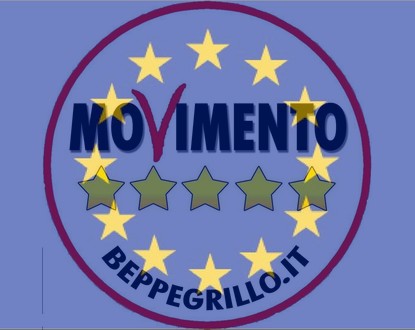The 5 Star Movement of the comedic blogger was the revelation of the Italian elections at the end of February. Its anti-establishment program is shared by many groups in Europe, which could make a common front during the European elections of 2014.
Beppe Grillo has a goal: Europe. While Italian politics struggle to recover from the tsunami that just shook it, at home in Genoa, the leader of the 5 Star Movement is already thinking beyond borders. His declared goal is now to export his experience to other European countries where the political and economic crisis is similar to that in Italy.
Today, the new challenge is to serve as the vehicle for a common language that unites the movement across Europe. Radical in his speeches (with his favorite expressions such as ‘vaffanculo’ and ‘out with all of them!’), he adds: “A disruption of the contemporary political situation is underway.”
“We cannot think we have done all this to stop here, in Rome. We must go further, and our goal is Strasbourg in 2014, the European Parliament. Because there is a similar need to that in Italy, and because if we gain a foothold in Europe, it will be a decisive change for our entire era,” he declared to his supporters.
Visionary or unrealistic? In recent weeks, the goal has become much more concrete since discussions on the social network Meetup have extended beyond borders and languages. A “revolution,” say the participants, “a sort of May ’68 that would use the Web as its vehicle.”
Will “digital democracy” be the new agora?
How to unite the movement? The targeted groups are the Indignados, but also the German Greens, right-wing or left-wing extremists, such as the Greeks of Golden Dawn or Syriza, or the National Front in France. And, as in Italy, these millions of citizens connected by common causes rather than ideologies or affiliations, Europeans who have not found until now a political “home” resembling them, all driven by the desire to break free from the deadlock of manipulation and opacity generated by delegating powers to traditional politics. This sense of growing distance between civil societies and political institutions is also spreading in Europe.
Never before had an anti-austerity party won elections in a European country, not since the great economic crisis hit the Old Continent. The fatigue is deep in the countries of a Europe that has been asked for years to tighten its belt.
Thus, while everyone looks with concern at the Italian Parliament, some are already thinking about the European elections. Italy could pave the way for a change affecting all of Europe.
See you in 2014.


